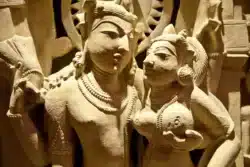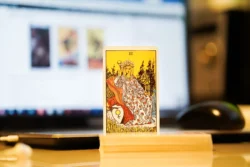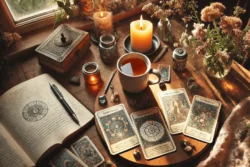In recent years I’ve come across many sensitive, caring and empathic people who say they seem to attract relationships with people who turn out to be narcissistic.
There are many articles on how to recognize somebody with these traits, once we know them well, but here I can explain how to spot the early signs of trouble and break this pattern.
Please be aware whilst reading this, that we are all complex personalities, and all have some level of vanity in our characters. Judgment is reserved, this is written to provide clarity and knowledge.
Next after this publicity
Why are there so many narcissists?
Over the last few decades the traits of narcissism have become increasingly prevalent in Western society. From the boom in the fashion industry, to the iconic world of modelling, to where we are now in the age of social media.
Anybody and everybody has a profile on a platform where they show their best features, and talk about all of their happiest and proudest moments. The new generations are seeking perfection and are more likely to date somebody based on their Instagram profile, than their sense of humor, or common interests.
The pressure on the younger generation to be beautiful and live a seemingly glamorous life is real. Worst of people feel the to compare and compete with one another, which divides society and causes loneliness and depression.
What are the main traits of a narcissist?
Somebody with narcissistic personality disorder is basically operating from a state of lack. For them there is something missing deep down and they are forever chasing the need to be satiated and to feel complete.
We may observe that they seem to seek compliments or attention, so that they feel accepted or validated by others.
Next after this publicity
They will often struggle to listen to others without bringing themselves into the picture, and so have a habit of turning all conversations back to themselves.
Often they are competitive and will try to size up others and draw comparatives, and therefore will often talk about their achievements and accomplishments and rather that being pleased by others’ success, they are more likely to try to bring others down when they are doing well.
Ironically, they do crave admiration and wish to be liked and even loved more than most, so they will be able to very persuasive, charming and can be very good company so long as things are going their way.
Some narcissists may use illness, or disadvantage as a way to deride constant attention and rather than boasting about their achievements, they can become masters at gaining reassurance and sympathy from others. These ‘covert’ narcissist types, work on a more passive-aggressive level, and may operate with more stealth and hence be more difficult to identify.
Who are empaths?
I’m often told by those with strong empathic natures that they end up in relationships with narcissists.
Empaths are people with an innate sense of others’ feelings, they not only care but actually feel the emotions of others. Some empaths can take on another’s mood, simply by being near them. They could be sat on public transport and suddenly overwhelmed with a sense of what the person next to them is feeling.
Next after this publicity
Often, because empaths feel so deeply, they are drawn to healing professions and have a natural desire to help others. On this basis, empaths are often more likely to take on negative emotions, so that they can, in effect, share and lessen the burden of those who are suffering.
How does a narcissist win over an empath?
Being healers and people who genuinely want to help others, empaths may have a tendency to be drawn to others who need them the most. In every empath there is a desire to be a ‘savior’ and that is not because they want to be a hero, but because deep down they also lack confidence, and feel that they need to act in ways that validates their worthiness in love.
A narcissist intrinsically wants attention and the be the center of not only their own universe, but also that of others. Hence, when a narcissist finds an empath they find an audience so pure, they are magnetically drawn to them.
A narcissist will automatically use their formula for winning affection and this will often consist of a sad story in which they win sympathy from the empath, or perhaps the empath has an overly present sense of goodness and morality, in which case the narcissist will evoke guilt from the empath so that they are beholden.
Or maybe the empath wants to save people, and then the narcissist will convince the empath that they are needed and that they ‘cannot live without them’.
What are the first signs that you may have met somebody with these traits?
I hear from those who have been in relationships with narcissists, that initially they are wonderfully charismatic and charming. That the in the beginning they are demonstrative, complimentary, witty and romantic.
Ultimately nobody is perfect, and if you meet somebody and they seem to have no flaws, then the chances are they are not being genuine at all. The trouble is, in these dynamics, the narcissist will only drop the mask when they know that they have won the loyalty and love of their new partner.
If you are concerned by somebody showing up too perfectly, then do observe their interactions with others, their self-centered personas will slip up with others.
Also, note that if you are somebody who is very won over by compliments, then you are very likely to be seduced by the person who knows how to say all the ‘right’ things.
A narcissist will not have genuine bonds with animals and so when they display these connections they will usually do so to impress others, or to try to find a way to show how great they are. So, they may have a very well-trained dog, and be more concerned with the tricks the dog can perform, rather than their bond with their companion. Or they may have a ‘show cat’ that wins them trophies.
Narcissists can only relate through their own needs, and their own feelings.
An advanced narcissist will know how to emulate empathy at first, and a clever narcissist will do good deeds for others, to make up their lack of feelings. This way they can be seen to be a ‘pillar of the community’ and somebody who is kind and thoughtful.
How does a narcissist and empath relate when in a couple?
Once the narcissist has won over the empath, the dynamic in the relationship will start to show an imbalance. Conversations will start to be turned entirely to the narcissist, their needs for attention will start to become more and more noticeable.
The more covert narcissists will drop their guard by showing their need for reassurance and sympathy on a regular basis. They will have a way of turning other people’s pain into their own and may start to notice that when another is suffering they never show actual compassion, rather they will tell you about a time when something similar happened to them.
Usually something they claim is far worse.
When an empath is in a relationship with a narcissist, they may also start to notice a ‘sinking’ feeling in their gut and to feel more tired when they are around their significant other. Ultimately their energy will feel drained and they may start to learn to behave differently so as to ensure that conflicts do not arise.
When a narcissist is not getting what they want, they can turn very nasty and their lack of care for others becomes very apparent. We can all act up in arguments, but a narcissist will usually try to make another feel guilty and appeal to their vulnerabilities. They can twist words and act hurt and upset if they are not getting the kind of attention they need and they will enjoy watching how everything becomes about their needs once more.
Principally, a narcissist will rarely apologize, or ever see any harm in their behavior. As they ultimately do not care much for the feelings of others, they won’t feel remorse or sorrow for hurting or even damaging another.
Traits that show somebody is *NOT* a narcissist
Deep bonds – A narcissist will rarely love animals and show deep compassion for their own or other species. Whilst they can emulate this kind of behavior, the true bond is missing.
Free-spirited – They will rarely do anything that makes them look ‘silly’, whilst they may claim it is shyness, generally being goofy and letting their hair down is not in their remit.
Playing for fun – Usually, they will only play a game to win, they are not good losers and whilst they may have to develop abilities to become winners, they will not be good natured about somebody apparently ‘bettering’ them. They are the kind of winners who always brag about their success.
Humility – a true narcissist will not show humility, if they do put themselves down it will be to garner attention and sympathy. So, if you are somebody who is very kind and compassionate, they may say that they feel ‘ordinary’ and that they are not ‘special’ as they are assured that you will provide lots of support, compliments and reassurance to them.
Innovative – narcissists can be poets and artists, successful businessmen or even people who run charities, but they won’t be truly innovative and creative. They won’t be able to come up with new inventions or designs which can further progress, or help others. Just like Thomas Edison who claimed the inventions of Nikola Tesla, they will only be interested in what furthers their profile and image.
Hobbies – a narcissist hobbies will always be ones that they can brag about or that in some way can make them look good. They may take on a cause so that they can talk about how kind they are, or some kind of competitive pursuit so that they can display their trophies. They rarely feel enjoyment just for the love of doing something…..which is a shame for them.
Important points for empaths
Please do note, that there is nothing wrong with caring about your needs, wanting to win a game, or needing sympathy.
At some point we all have narcissistic traits and we are all human with our own journeys. I write this piece only to assist caring people in how to recognize the kinds of relationships that may cause them damage in the long run.
The key here is that if you learn to step back and observe people before diving into relationship, then you can usually avoid these kinds of situations.
Do you thrive on compliments? – work on self-love, as enjoying the compliments of others too much leaves you open to manipulation.
Do you feel guilty too easily? – work on your confidence and sense of self. Others can easily burden you with unwarranted responsibilities if you display a guilt complex.
Do you have unresolved trauma? – most of us do on some level, but being mindful of your issues and pains, and working steadily to heal is imperative. If you already have trauma, then it is easy for another to mention this weak spot in your life, until you take on the other person’s traumas as your own.
Do you feel like you desperately need love? – develop stronger friendships, socialize and have a network of people who love you for who you are and do not ask for anything in response. Do not be the ‘answer to somebody else’s dreams’, be the person who shows up for yourself, and learn to nurture yourself, as you would another.
If you would like to have some one-on-one guidance about your relationship with a narcissist, you can contact me by email, facebook or Instagram.
Reiki blessings~~~~






































